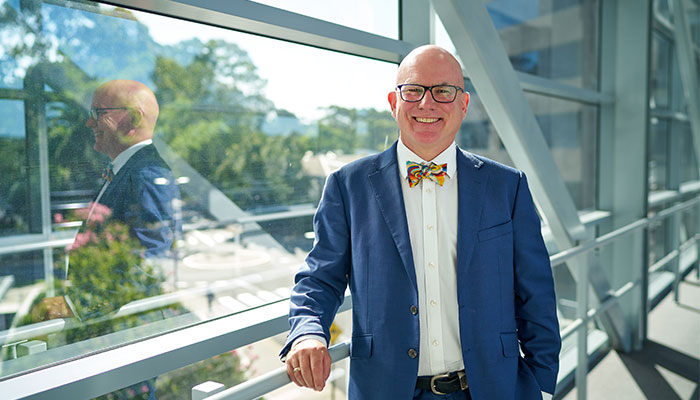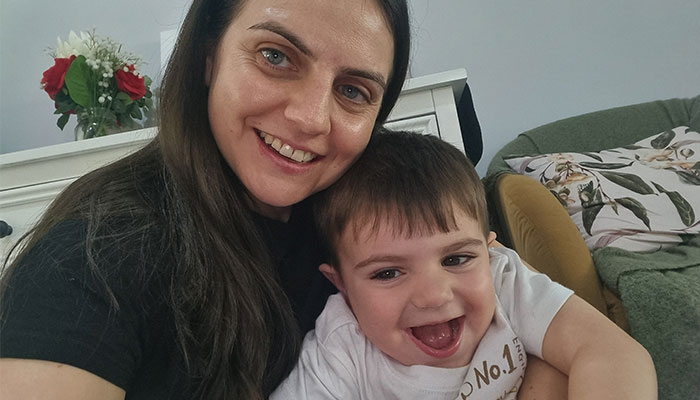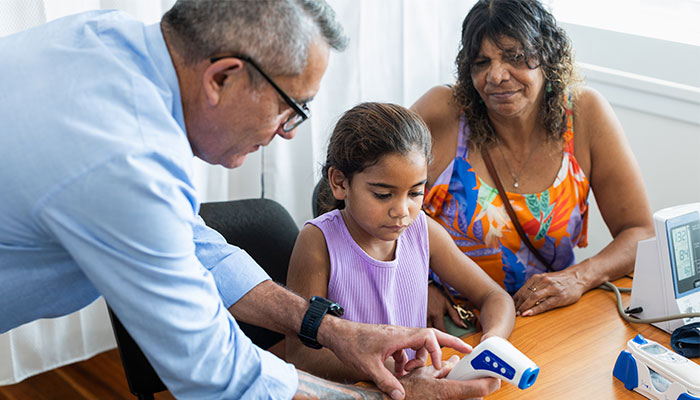Macquarie University is the only institution in Australia and one of just a few worldwide to be taking part in a clinical trial of the gene therapy tofersen.

Fighting a brutal disease: Professor Dominic Rowe is the driving force behind the Macquarie University MND clinic and leads the Australian arm of a global gene therapy trial.
The drug was developed by international biotech company Biogen to combat one of the most common varieties of familial MND, carried in a mutation on the SOD1 gene.
About 10 per cent of MND is inherited, and 43 different genetic mutations have been implicated. The other 90 per cent of cases are believed to have environmental causes.
No matter its origin, the disease has always had the same outcome: increasing muscle weakness as the motor neurons falter and die, resulting in difficulty with walking, talking, swallowing and eventually even breathing unaided.
Most patients lose their fight within two to five years of diagnosis, and the Australian death toll has reached 800 a year – the equivalent of two-thirds of the national road toll.
Tofersen is the first therapy of its kind to carry a glimmer of optimism.
Four years ago, it was made available to people already experiencing symptoms from the SOD1 variation of MND under a Biogen Extended Access Scheme.
Four symptomatic patients at the University’s MQ Health MND Clinic are receiving tofersen infusions every month, and the results so far have been remarkable, suggesting it can slow the disease’s progression – and perhaps even halt it if the treatment is started early enough.
MND is an awful disease, but tofersen is looking like the golden fleece of treatments, and the results we are seeing give me real hope that one day we are going to beat it.
In a separate clinical trial, which has been running since 2022, people who carry the gene but have not yet begun to show symptoms of MND begin to receive monthly infusions when their blood levels of a protein called neurofilament rise above a set threshold.
When neurons are damaged, neurofilament begins to leak from them and appear in the blood, and even minuscule increases provide a reliable early warning sign that the faulty gene has been activated.
Professor of Neurology Dominic Rowe AM is a Director of Macquarie University MND Research, and the driving force behind the University’s MQ Health MND Clinic.
He is leading the Australian arm of the ATLAS trial and has 10 patients taking part, out of a total of 200 worldwide.
“Just having genetic testing for MND requires a huge amount of courage for people who have already seen multiple family members die from it,” Professor Rowe says.
“They know what it means if the result is positive, and quite naturally, the knee-jerk reaction is ‘I don’t want to know.’
“Getting the positive result is hard enough, but for those who are taking part in the trial, when they reach the neurofilament threshold that shows the damage to their motor neurons has begun, it’s like their world is about to cave in.”
To test or not to test
Having seen her father die from MND when she was just 14, Western Sydney mum, Rebecca Rouco was originally in the camp of not wanting to know.

Family gene: Young Sydney mother Rebecca Rouco receives monthly infusions of tofersen and remains free of neurological symptoms.
Tragically, many members of her family have already died from the disease, which also claimed the lives of her aunt and her grandfather, as well one of her grandfather’s siblings, and their mother before them.
Still, she was torn on whether to be tested to see whether she, too, carried the deadly gene, knowing that confirmation would irrevocably change her life.
It was not until she decided she wanted children in her late 20s that she realised she needed to have the test.
And while the result confirmed her worst fears, it also gave her new drive.
“There was no way I was going to pass this on,” Mrs Rouco says. “We went with IVF so we could have genetic screening for the embryos, and our son, Arturo, doesn’t have the gene.
“If this is the only good thing I can do in my life, then I’ve done it, because he doesn’t have it.
“My genetic counsellor told me about the ATLAS trial, but I’d had so many complications during my pregnancy that I put off making a decision.
“But it was such a blessing to have him, and I realised I wanted to live to see him grow up.”
Now 32 and with Arturo set to turn three in September, Mrs Rouco has been receiving monthly infusions of tofersen for two and a half years.
Her neurofilament levels hit the threshold just two months after joining the trial, but she remains free of neurological symptoms.
A caring team
In practical terms, having monthly infusions means Mrs Rouco has already had 35 lumbar punctures, and potentially has many more ahead of her.
It can be a daunting prospect for patients, but gene therapies often need to be introduced directly into the spinal fluid to cross the blood/brain barrier, which protects the brain from toxins but also keeps out potentially life-saving drugs.
- Australia's first map to track motor neuron disease clusters
- Hope for frozen shoulder treatment : new trial
Professor Rowe credits the expert team at MQ Health with making the process as comfortable as possible for patients.
“Trials like this are made possible by our highly skilled radiologists, who can perform the lumbar puncture quickly and painlessly, using advanced imaging technology to ensure that it goes in precisely the right spot every time,” he says.
“Patients see the same radiologist each time, usually Professor John Magnussen or Associate Professor Kevin Ho-Shon, and it gives them confidence that will be quick, precise and painless. It’s very reassuring.
“I cannot speak highly enough of our team in the MQ Health MND Clinic – the nursing and hospital staff who care for our patients, the clinical trial supervisors, the pharmacy staff who ensure the infusions are transported and stored at the correct temperature, the genetic counsellors who support patients through the testing process, the doctors and allied health professionals who help improve patients’ quality of life through healthcare interventions, and the porters and hotel staff who make sure they are settled and comfortable.
“Everybody has a role to play in making sure we give our patients everything we can.
“Our prime goal here is to either slow the disease to delay its onset or stop the progression so that people like Rebecca never have to get it.
“MND is an awful disease, but tofersen is looking like the golden fleece of treatments, and the results we are seeing give me real hope that one day we are going to beat it.
“I’m an optimist.”
The ATLAS trial is now full, but anyone interested in clinical trials for MND should contact the MQ Health MND Clinic. Symptomatic patients with the SOD1 variant of MND can start on tofersen therapy at any time.
Professor Dominic Rowe AM is the Foundation Professor of Neurology at Macquarie University, a Director of the Macquarie University MND Research Centre and Director of the MQ Health MND Clinic.
The MND Research Centre is holding its annual MND Gala on Friday, 20 June 2025 to raise funds for research and to support ongoing patient care at the clinic.



